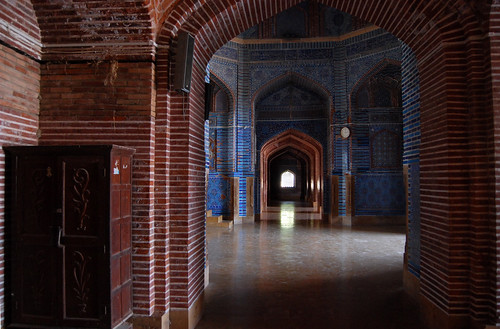All three papers give the number of Palestinian casualties in the first paragraph, putting it around 350, but the New York Times, in the very same breath clarifies that according to the UN only some 60 of those Palestinians were civilians. The Guardian mentions that in the third para while Dawn much later both emphasizing that these numbers are thought to be very conservative.
All three list the places Israelis attacked (the Islamic University, the Interior Ministry and the presidential guesthouse). The NYTimes is quick to explain that Israel considers these places Hamas' civic institutions. A strange assertion. I would say that the Interior Ministry in Gaza is Gazan's civi institution not just the Hamas'. The Guardian calls the Islamic University "the territory's main university and one with links to Hamas". It also lists the damage to laboratories in the university. Dawn just notes that the university is a "significant cultural symbol in Gaza".
Then NYTimes spends over a 100 words describing the Hamas rocketfire and each of the four killed Israelis. It also paints a vivid picture of "thousands of Israelis huddled in shelters". Dawn spends 25 words to say that two Israelis have been killed by rocketfire since Israeli attacks starts. It mentions that "Israel has said" that it has launched its attack because of intensifying rocketfiring but undercuts that assertion with a note in the same sentence about Israeli national elections approaching.
After describing the Israeli's plight, the NYTimes spends around 40 words describing the Palestinian's situation, but in that same paragraph, in the very next line starts to talk about how Hamas has been shooting Palestinians too on the charge that they were collaborators. It then spends a huge chunk of the article describing these executions by Hamas and only then describes civilian casualties of Israeli bombings. Dawn and the Guardian do not report any such killings by Hamas.
The NYTimes does not note Ban Ki-Moon's opposition to the Israeli attack at all while the Guardian quotes him extensively, including his condemnation of Israel's "excessive use of force".
There are at least a dozen more smaller differences between the three articles but these in themselves make the NYTimes' pro-Israeli and Dawn and the Guardian's pro-Palestinian biases clear. I am sure there has been no falsification of information but the choices of inclusion, omission and organization make all the difference in giving these reports their slants.
Sitting in Karachi, I cannot really determine where the reality of things lies — between the poles of these three news reports or beyond them. And without wanting to spark off an epistemological controversy, I wonder whether the reality is entirely knowable at all. Perhaps, all that is needed of us news readers is the awareness that news outlets report not the reality of things but their version of reality, seen consciously or subconsciously, through the filter of their biases.



